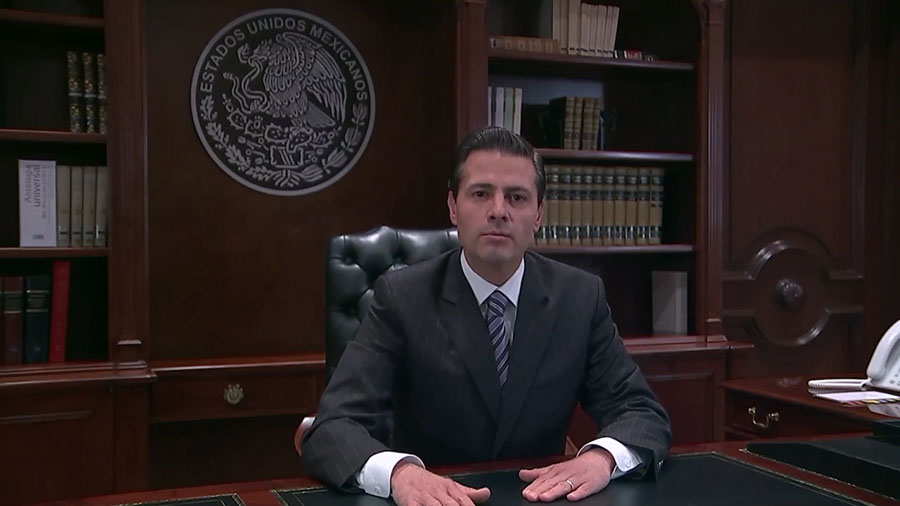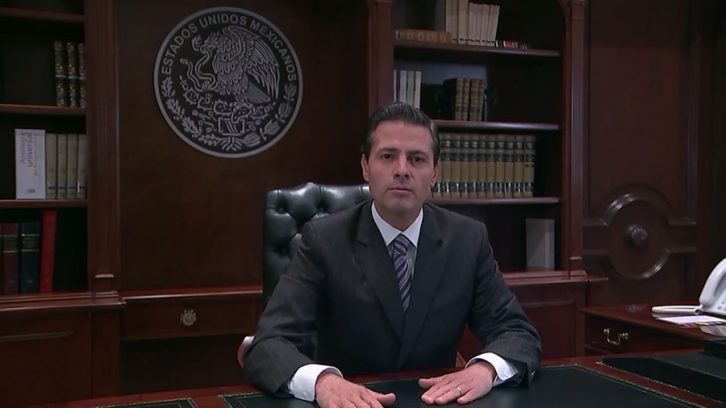Immigration
What the wall means to Mexicans in Halifax
Wednesday's executive order also targets undocumented migrants

caption
Mexican President Enrique Peña Nieto responds to the order in a video released by the Mexican government.
caption
Mexican President Enrique Peña Nieto responds to the order in a video released by the Mexican government.President Donald Trump’s promised wall on the Mexican border is actually getting built. It was part of an executive order signed Wednesday that also contained moves against undocumented migrants in the United States.
According to the order, the U.S. will start “immediate construction of a physical wall on the southern border.” The policy also states they will “promptly” remove anyone in the country who is not there legally.
Robert Bothwell, director of the University of Toronto’s international relations program, says the question for Canadians right now is “whether Trump puts pressure on us … to conform to his prescriptions for entry to the U.S.”
If Canada refuses, he says in an email to The Signal, it may be the next target of anti-immigration programs in the U.S.
Bothwell believes the number of Mexicans seeking to move to Canada is likely to remain small. However, Wednesday’s order has nonetheless frustrated the small Mexican community in Halifax — where about 200 Mexican-born people reside, according to 2011 census data.
Carolina Ontiveros, 23, is a engineering master’s student at Dalhousie University. She has been living in Halifax for six months.
“I feel very scared about my family because I think the situation in Mexico is going really, really bad economically,” she says. “Everything going on with the U.S. is going to be a big problem.”
As well, she worries for the families in the U.S. that may be broken up by this order.
“They have their lives, their children, their jobs,” she says. “And now they’re going to lose everything.”
Veronica Belmonte came to study in Canada from Mexico nine years ago, and says this order is the wrong way to approach the problem of illegal immigration. Belmonte, who graduated from the forensic science program at Saint Mary’s University, also dislikes the way American politicians seem to assume Mexico is the only country where undocumented migrants are from.
“Just because they are Latin does not mean they are Mexican,” she says. “(Trump) is very ignorant about the whole situation.”
Jorge Loza, 37, has been in Canada for five years. He says he feels hostility from across the border over Trump’s “obsession” with the “useless” wall. He was glad to hear of Mexican President Enrique Peña Nieto’s statement that Mexico will not pay for the barrier, which is estimated to cost upwards of $25 billion.
“If Trump wants to build a wall to isolate himself, go at it with your money,” he says.
Nieto released a video Wednesday again denying Trump’s claim that Mexico will pay for the border wall’s construction. He also announced today that he would not attend next week’s planned meeting with the U.S. president.
Modern Mexican historian and retired Oxford professor Alan Knight has doubts that the executive order will be effective.
“I can’t see how Trump’s proposed ‘wall’ will make a big difference, certainly not in the short to medium term,” he says in an email to The Signal, noting that he is commenting as a historian, not an expert on the future.
“Perhaps the hostile atmosphere Trump and his cronies have fostered in the U.S. is as relevant as any actual border measures they take to deter immigration.”
Canadians are much more welcoming to people from other countries than Americans, says Belmonte. Her grandfather is half Korean, half Mexican and was born in California.
“People make him feel like he doesn’t belong … even when he served as a police officer in Los Angeles for many years and was born there,” she says.
In Canada, “people make me feel so welcome … I get, ‘I’m so happy you’re here,’ and ‘welcome,’ or ‘you belong here,’” says Belmonte.
“They make me feel I have the same rights as them.”

